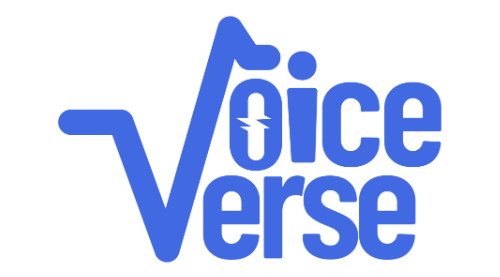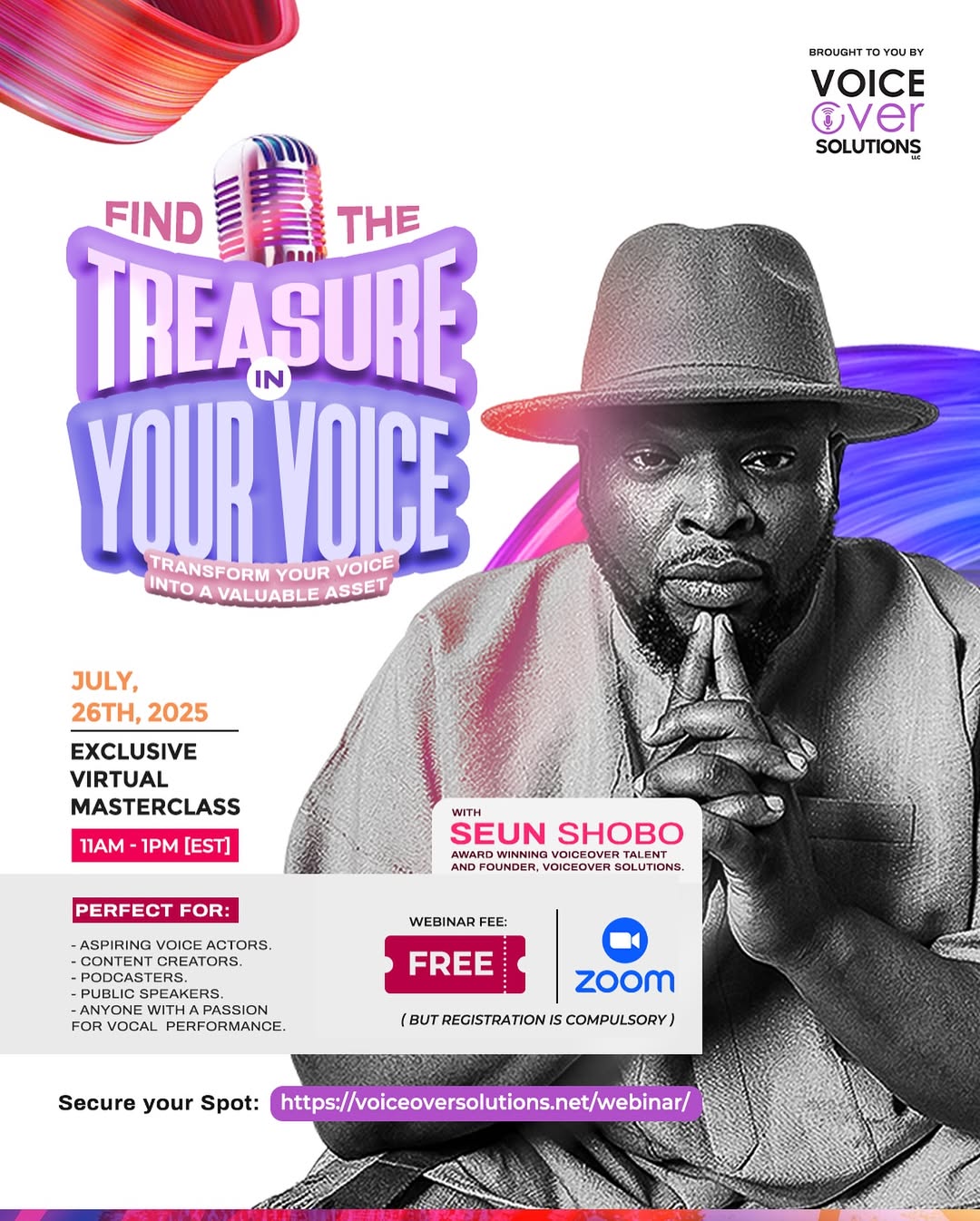By Echanah Gold
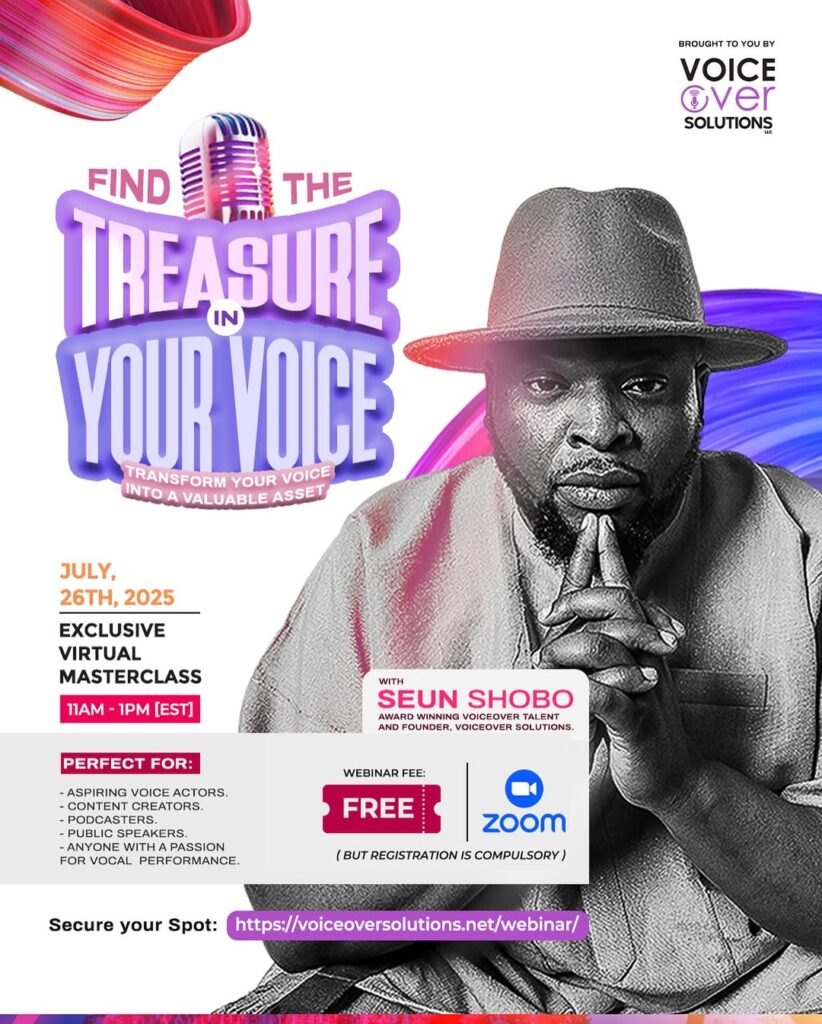
In a dynamic voice-over webinar hosted by Voiceover Solutions, renowned brand strategist and voice coach, Seun Shobo, widely known as The Brand Master, took participants on a deep dive into the emotional and technical dimensions of the human voice. The webinar emphasized the importance of voice authenticity, the dangers of not being original, and how talents can harness their unique sound to make lasting impact.
“When voices stay buried, the world loses,” Shobo stated, setting the tone for an intense session that urged voice-over talents to unearth their hidden vocal power. According to him, many people go through life with their true voices buried under fear, past trauma, cultural expectations, and a need to conform.
He further explained that while we all have a natural voice texture; the one we were born with, our environment and emotional experiences shape how we sound. In his word, “Your biggest voice breakthrough is often hidden underneath your emotional patterns” which he says, includes both positive and negative influences, from cultural beliefs to past hurts and personal triumphs.
He noted that over time, people pick up habits, often unconsciously, that affect vocal health and expression. While a person’s natural voice cannot be changed, it can certainly be improved through learning, self-awareness, and practice. “Lack of vocal health is one of the major issues affecting voice-over artists,” he added.
To help talents make sense of their voice journeys, the brand master introduced the four “voices” that influence vocal expression:
- The Intrinsic Voice – This is the voice that comes from within. It represents one’s values, beliefs, and authentic voice. For voice talents, this is often the voice that gets them booked repeatedly — the one that clients trust and return to.
- The Instrumental Voice – Seen as a treasure chest, this voice persuades, narrates, entertains, and inspires. It is skillfully developed and works in harmony with the intrinsic voice to deliver impact.
- The Mimetic Voice – according to Shobo, this false treasure which is inauthentic and lacks personal conviction, stems from fear or insecurity. “Some talents are not confident in their voice and want to sound like others,” Shobo explained. This leads to disconnection between who they are and how they express themselves vocally.
- The Algorithm Voice – Dubbed the synthetic shadow, this voice is mostly for clout. It is often driven by the pressure to be seen and heard (nowadays on social media), rather than to make meaningful impact. “We must chase impact over clout,” he urged.
To navigate these different voices and find true vocal authenticity, Shobo introduced the Voice Authenticity Compass, which includes four questions a voice talent must ask before any speaking situation, which can also be referred to as your Daily Navigation Tool:
North (Intrinsic): Does this feel natural and effortless?
East (Instrumental): Am I adapting skilfully while staying true to myself?
South (Mimetic): Am I copying someone else’s style or mannerisms?
West (Algorithm): Am I speaking this way for external validation?
Shobo concluded by stating, “Your voice has found itself when it effectively serves its purpose,” emphasizing the need for talents to work on themselves, not just technically, but emotionally and mentally as well.
The webinar ended with reflections on how voice-over artists can exchange real value for the “treasure” their authentic voice offers, reminding participants that their voice is not just a tool but a valuable currency.
Six Trading markets were also identified: Performance Market, Influence, Connection, Knowledge, Healing, and Commerce Markets.
Follow @voiceverseng across all social media handles for more updates from the voiceover industry.
